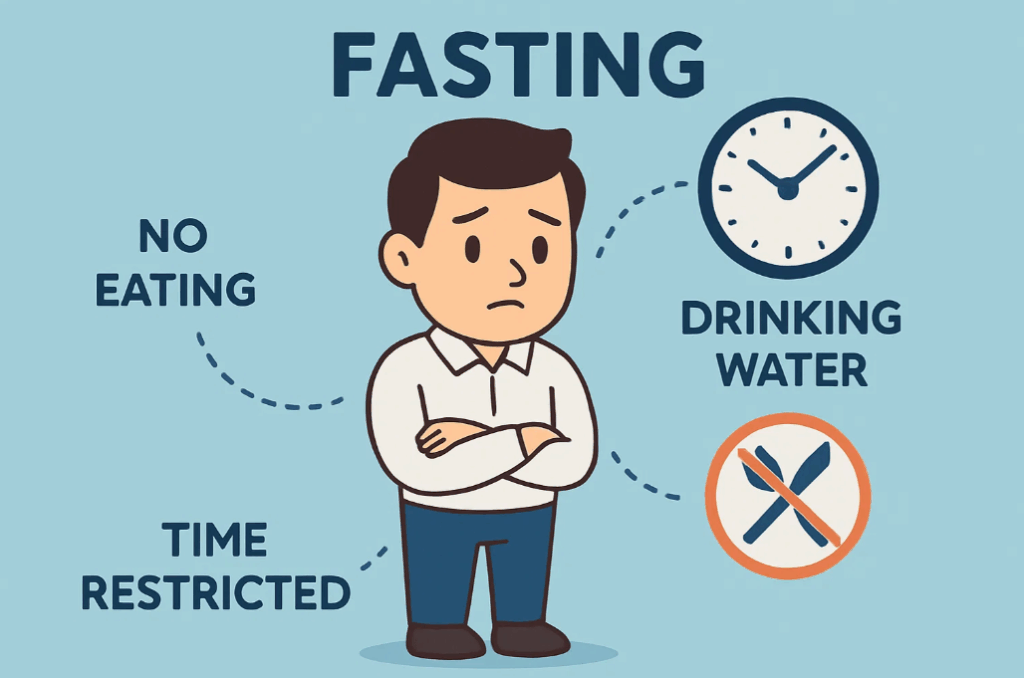Healthy food is not that bad. Than ever wonder why people tell you to eat your fruits and vegetables, but not candy as a kid?
The answer is right here!
This article about healthy foods will discuss:
- What is Healthy Food?
- Why healthy eating is important
- Liquids and Nutrients You Need In Order To Live
What is Healthy Food?
Healthy food is one of the most important things you must have in order to be healthy and be fit. It provides the necessary nutrients, vitamins, and minerals that your body needs. In addition to eating well, drinking plenty of water is essential. Your weight, muscle growth, fitness, and overall health depend greatly on what you eat—even more so than on exercise. What you eat is also dependent on your culture. There are times when you need to be very strict with your food choices, and other times when it’s okay to be a little more relaxed. Every meal or snack you consume plays a crucial role in your body’s health and performance.
However, one of the good health practices is healthy eating, and if you don’t consider the results of what you eat or how much you eat, you’ll simply wish you had.
Why is Eating Healthy Foods Important?

The main reason eating healthy food is important is that it provides your body with the energy needed to function properly and stay alive. Foods and Drinks contain essential nutrients, including water, vitamins, carbohydrates, proteins, fats, and oils, which support the regulation, repair, and growth of your body. God created these nutrients to be absorbed by your body, promoting the health of various functions and parts of your body.
Eating healthy food is like filling a car with the best gas possible, rather than unhealthy food which is like filling a nice car’s gas tank with mud (the car won’t function very well, if at all).
Liquids and Nutrients You Need In Order To Live
Water

Your body is made up of approximately 60%-75% of water, and all the fluid in your body contains water. Therefore, you need lots of it. Actually, you should drink at least 6-8 cups of water per-day. To put this to scale, the average American drinks around 60 gallons of water a year.
Aside from quenching your thirst, water has many other benefits which include supporting digestion, the immune system, absorption, and regulating body temperature. The average person cannot live without water from 3-4 days. Water Drinking clean water is especially important because water that is not cleaned may contain deadly diseases, and infectious causes that will make you sick.
Quick Overview of Drinking Water
Tap: Tap water is readily available and treated by municipal systems to meet safety standards for drinking and household use.
Purified: Purified water has been filtered to remove contaminants and impurities, making it a clean option for hydration.
Distilled: Distilled water is created by boiling water and then condensing the steam back into liquid form, leaving impurities behind. It is considered the BEST drinking water for everyday consumption
Spring: Spring water comes from natural sources and is often bottled directly from springs, retaining minerals naturally filtered by the earth.
Mineral: Mineral water contains naturally occurring minerals, such as calcium and magnesium, that contribute to its distinct taste and potential health benefits.
Alkaline: Alkaline water has a higher pH level than regular water, and is believed by some to help neutralize acid in the body and improve hydration.
Electrolyte: Electrolyte water is infused with minerals like sodium, potassium, and magnesium, making it ideal for replenishing lost electrolytes during exercise.
Infused: Infused water is flavored with fruits, herbs, or vegetables, offering a refreshing twist and added nutrients.
Well: Well water is sourced from underground wells and may require filtration or treatment before use, depending on the quality of the source.
Reverse Osmosis: Reverse osmosis water is purified through a semi-permeable membrane, removing impurities, salts, and other contaminants.
Minerals

The purpose of minerals in the body is to help with the structure of your bones and teeth, nerve and muscle functions, fluid balance, oxygen transport, enzyme activation, hormone regulation, and immune support.
Like all of your body’s nutrients, minerals are categorized into two main groups: macrominerals, which are required in larger amounts, and trace minerals, which are needed in smaller amounts. Too much or a lack of minerals can lead to mineral deficiencies and other health problems, which could be serious. Minerals are inorganic substances which means they are derived from rocks, soil, and other places (not living things)
Maintaining a healthy diet generally prevents mineral deficiencies, but you may still need to take vitamin supplements. However, vegans, the elderly, people with digestive disorders, or those with poor diets are more likely to experience mineral deficiencies. If you are one of these people, than you will need to consult a doctor, or use more vitamin supplements.
Mineral Overview
- Macrominerals (required in larger amounts)
- Calcium
- Purpose: Builds and maintains bones and teeth, aids in muscle function, nerve transmission, and blood clotting.
- Phosphorus
- Purpose: Works with calcium to build bones and teeth, and is crucial for energy production (ATP).
- Potassium
- Purpose: Regulates fluid balance, muscle contractions, nerve signals, and helps control blood pressure.
- Sodium
- Purpose: Maintains fluid balance, aids in muscle and nerve function, and helps regulate blood pressure.
- Magnesium
- Purpose: Supports muscle and nerve function, regulates blood pressure, and aids in protein synthesis and energy production.
- Chloride
- Purpose: Works with sodium to maintain fluid balance and is a component of hydrochloric acid in the stomach.
- Trace Minerals (required in smaller amounts)
- Iron
- Purpose: Essential for producing hemoglobin in red blood cells to carry oxygen throughout the body.
- Zinc
- Purpose: Important for immune function, wound healing, DNA synthesis, and cell division.
- Copper
- Purpose: Helps form red blood cells, absorb iron, and maintain healthy blood vessels, nerves, and immune function.
- Iodine
- Purpose: Essential for producing thyroid hormones that regulate metabolism and growth.
- Manganese
- Purpose: Involved in bone formation, blood clotting, and metabolism of carbohydrates and cholesterol.
- Fluoride
- Purpose: Helps prevent tooth decay and strengthens bones and teeth.
- Selenium
- Purpose: Acts as an antioxidant, protecting cells from damage, and supports thyroid function and immune health.
- Chromium
- Purpose: Enhances insulin function and helps regulate blood sugar levels.
- Molybdenum
- Purpose: Helps in the metabolism of sulfur-containing amino acids and acts as a cofactor in certain enzyme reactions.
- Boron
- Purpose: Supports bone health, affects hormone levels, and enhances the use of calcium and magnesium.
- Nickel
- Purpose: Plays a role in enzyme function and is involved in the metabolism of fats and carbohydrates.
- Vanadium
- Purpose: Supports bone health, metabolism, and blood sugar regulation, though its exact role is still being researched.
- Cobalt
- Purpose: A component of vitamin B12, which is important for the formation of red blood cells and nervous system function.
Vitamins
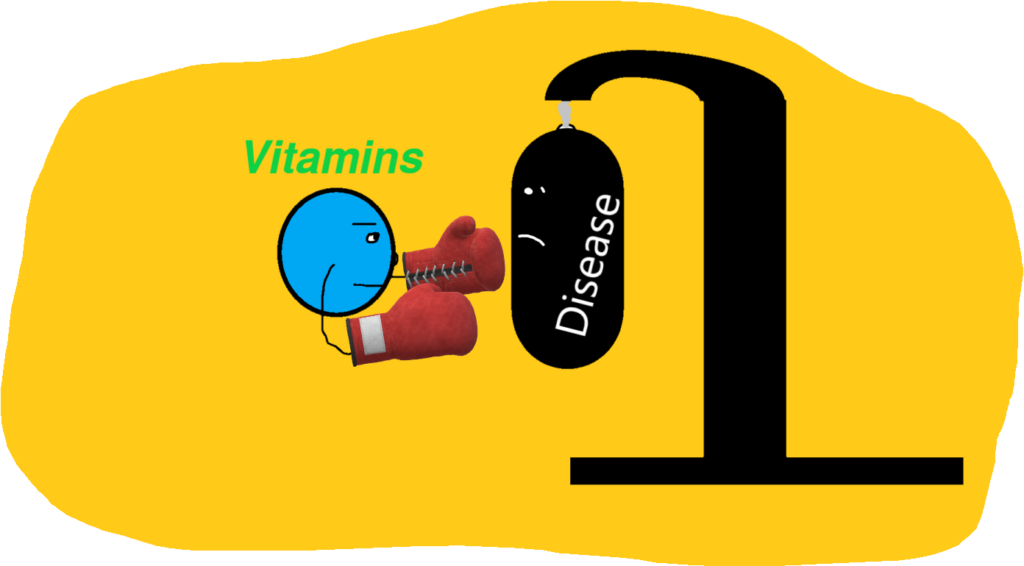
Vitamins are very-needed nutrients that help keep your body functioning, fight disease, strengthen your body, promote growth, and maintain health. Guess what, vitamin D is the only vitamin your body can produce by itself, and is made when your skin is exposed to sunlight, or you eat some yummy fruit.
As is expected, you need vitamins in small amounts, as consuming too much can lead to toxicity. However, if you do not get your necessary vitamins you will get some sort of disease. Common vitamin deficiency diseases include scurvy (lack of vitamin C) and rickets (lack of Vitamin D). These are not very common because the cause is well known. Another fact about vitamins is that they do not produce energy but rather help aid in absorption.
Vitamins are organic compounds and can be categorized into fat-soluble and water-soluble. Fat-soluble vitamins are absorbed with the help of fats and stored in the body’s fat tissues and liver, while water-soluble vitamins are absorbed directly into the bloodstream and are not stored, requiring regular replenishment through diet, or supplements.
Vitamin Overview
Water-Soluble Vitamins
- Vitamin C (Ascorbic Acid)
- Purpose: Important for immune function, collagen production, and acts as an antioxidant.
- B Vitamins:
- Vitamin B1 (Thiamine)
- Purpose: Helps convert food into energy and supports nerve function.
- Vitamin B2 (Riboflavin)
- Purpose: Involved in energy production and maintaining skin and eye health.
- Vitamin B3 (Niacin)
- Purpose: Supports energy production, digestion, and skin health.
- Vitamin B5 (Pantothenic Acid)
- Purpose: Helps in energy production and the synthesis of hormones.
- Vitamin B6 (Pyridoxine)
- Purpose: Aids in brain function, red blood cell production, and protein metabolism.
- Vitamin B7 (Biotin)
- Purpose: Important for metabolism of fats, proteins, and carbohydrates.
- Vitamin B9 (Folate or Folic Acid)
- Purpose: Essential for DNA synthesis and cell division, especially during pregnancy.
- Vitamin B12 (Cobalamin)
- Purpose: Needed for red blood cell production and proper nerve function.
- Vitamin B1 (Thiamine)
Fat-Soluble Vitamins
- Vitamin A
- Purpose: Important for vision, immune function, and skin health.
- Vitamin D
- Purpose: Helps the body absorb calcium and phosphorus for bone health.
- Vitamin E
- Purpose: Acts as an antioxidant and helps protect cells from damage.
- Vitamin K
- Purpose: Crucial for blood clotting and bone health. It helps in the synthesis of proteins needed for blood coagulation and the regulation of calcium in bones and tissues.
Carbohydrates

Carbohydrates are the energy powerhouses for your body (including your brain), and should make up 45%-60% of your diet. They are one of the PRIMARY macronutrients among proteins and fats. Carbohydrates are generally divided into two types: simple carbohydrates, which consist of one or two sugar molecules, and complex carbohydrates, which are made up of longer chains of sugar molecules.
Simple carbohydrates are usually found in liquids, meaning they are absorbed more quickly and therefore provide faster, but shorter, bursts of energy. Complex carbs on the other hand provide energy for longer periods of time, but take longer to digest than simple carbohydrates.
They provide a long-lasting source of energy. Once consumed, carbohydrates are basically broken down and converted into energy for your body to use, with the help of your vitamins and minerals. Any excess glucose can be stored in the liver and muscles as glycogen for later use.
However, when you eat more carbs than you should, the extra carbs are converted to fat, which is not ideal.
Proteins

Proteins (made from amino acids) build and repair cells, tissues, organs, and muscles. They’re like the construction crew for your body. They also transport oxygen through the blood, and provide energy when carbs and fats are lacking. The more you consume, as your needed portion, the stronger your body will be and the more capable it will be of repairing itself. The better your body can mend itself, the easier it will be to fight disease and perform daily tasks.
Your diet should consist of 20% to 35% protein. Expectedly, there are two main types of proteins: complete proteins, which contain all essential amino acids (from meaty animals), and incomplete proteins, which lack one or more essential amino acids (many times from plants).
Protein is found in every cell in your body, so it makes sense that you need protein to have a strong body. Proteins help create healthy skin, bones, muscles and organs. However, if you do not eat enough protein, you may experience muscle loss, not fat loss, leading to weakness and decreased muscle function because the building blocks for muscle repair are in the protein you didn’t eat.
Proteins also support the production of enzymes, hormones, and antibodies, which are essential for digestion, immune function, and body regulation. Additionally, protein has a high thermic effect, meaning your body burns more calories to digest it, helping with metabolism and weight management. So, eat your protein!
Fats and oils

Fats and oils are essential because they provide fatty acids, energy, and fat-soluble vitamins. However, the energy from fats is less readily available than the energy from carbohydrates. Both fats and oils are considered lipids.
Fats are solid at room temperature and are usually derived from animals, while oils are liquid at room temperature and are typically derived from plants or fish. There are different types of fats, and understanding these differences is important to determine which ones are healthier.
Saturated fats are those in which all the fat molecules are saturated with hydrogen atoms. In simple terms, this means that the fat molecules are ‘full’ (like a box that’s already packed to the brim), making it harder for your body to break them down.
Unsaturated fats, on the other hand, have at least one double bond between carbon atoms, which means they are more easily digested because they can be broken apart more easily.

Trans fats are unsaturated fats that have been chemically altered through hydrogenation to become more saturated. Trans fats are found in processed foods and are considered the worst type of fat because they are more likely to cause various health issues, such as heart disease, diabetes, and cancer.
Furthermore, fats have a significant impact on your body’s cholesterol levels. Omega-3 and omega-6 are essential fats because your body cannot produce them on its own, so you must obtain them through your diet.
Omega-3 and omega-6 fatty acids help reduce inflammation and support heart health. A fun fact about fat is that it helps you feel full after eating because it slows down digestion.
Clarification between being fat and fats:
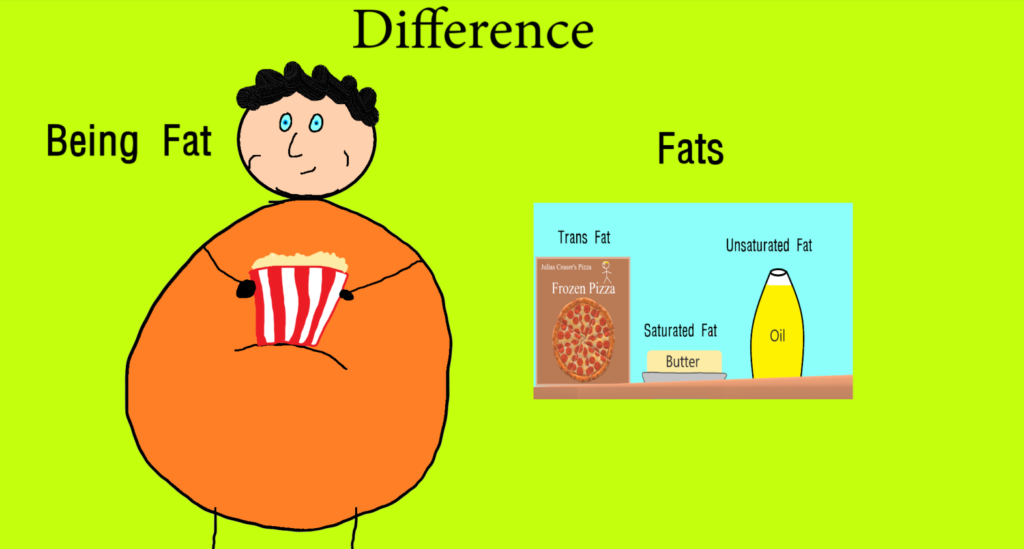
Being fat refers to having an excessive amount of food stored in your body as fat, which can result from two main factors: poor diet and lack of exercise. Fats, when consumed in excess, can contribute to fat weight gain because they are calorie-dense and provide more energy than the body needs, leading to the storage of excess calories as body fat. However, if you eat the appropriate amount of fat that your body requires, it will provide the necessary vitamins and energy your body needs from fat.
Groups: The Best Nutrient-rich Foods
So now that you have a good idea about the nutrients found in food, it’s time to learn which foods contain them and how much you need in order to be healthy.
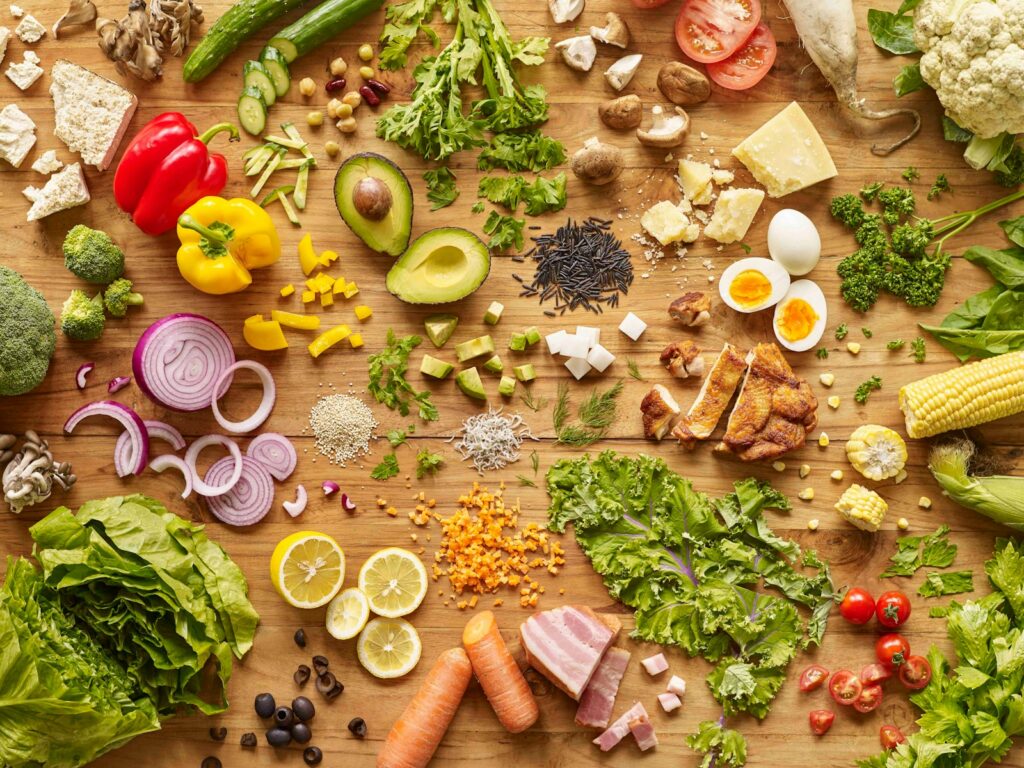
Healthy foods are essential for the body, and even with the many benefits they offer, people still don’t enjoy eating the food that God has provided. I find that many people are very picky about what they eat, whether healthy or unhealthy. Some foods should be completely avoided, while at other times, people refuse to eat a nutritious meal simply because it contains a undesirable vegetable. I get it; I don’t exactly like the taste of every vegetable on the planet. However, it’s not that they’re allergic to the vegetable, but simply because they don’t like the taste.
Meanwhile, many people often enjoy processed foods that are high in fat, salt, and sugar, or deep-fried foods from restaurants. The reason for this behavior isn’t just coincidence; it’s scientifically proven, and based on personal experience, that if you eat unhealthier foods, you’re less likely to choose healthier options.
Healthy foods, however, do taste better once you get accustomed to them, and they’re more filling in a good way. Unhealthy foods often leave you feeling unsatisfied, which can lead to overeating. You only really realize this after having a good, healthy meal.
The two main questions you should be asking yourself are, “Why do I eat?” and “Is what I eat healthy?”
This section will tell you which healthy foods are the best for you.
Fruits and Vegetables

Fruits and vegetables are a great food items to have in your diet because they are food rich nutrients. They contain fibers, which help clean out your digestive system making it run smoothly, anti-bodies which help fight against disease, vitamins and minerals, which help your whole body stay healthy and properly. Disclaimer: eating healthy foods doesn’t’ have to cost you as much money as eating unhealthy foods.
According to research, just one carrot slice isn’t enough, you should have 2-3 servings of fruit and 3-4 servings of vegetables, but what does it look like applied. If you haven’t been eating fruits and vegetables, and want to start, (a wise choice), then you can gradually put them into your diet. So, what are the best fruits and vegetables, considering taste, health benefits, and cost.
List of Most Healthy fruits and vegetables
Super Vegetables:
- Spinach
- Kale
- Broccoli
- Sweet Potatoes
- Carrots
- Brussels Sprouts
- Cauliflower
- Red Bell Peppers
- Swiss Chard
- Beets
- Asparagus
- Arugula
- Cabbage
- Collard Greens
- Mushrooms (like Shiitake, Maitake, and Reishi)
- Zucchini
- Edamame (Young Soybeans)
- Squash
Super Fruits:
- Cherries
- Blueberries
- Dates
- Apples
- Pears
- Oranges
- Grapes
- Guava
- Plums
- Raspberries
- Pineapple
- Figs
- Papaya
- Apricot
- Watermelon
- Mango
- Kiwi
- Strawberries
- Avocados
- Lemons
- Blackberries
- Grapefruit
- Pomegranate
Dairy
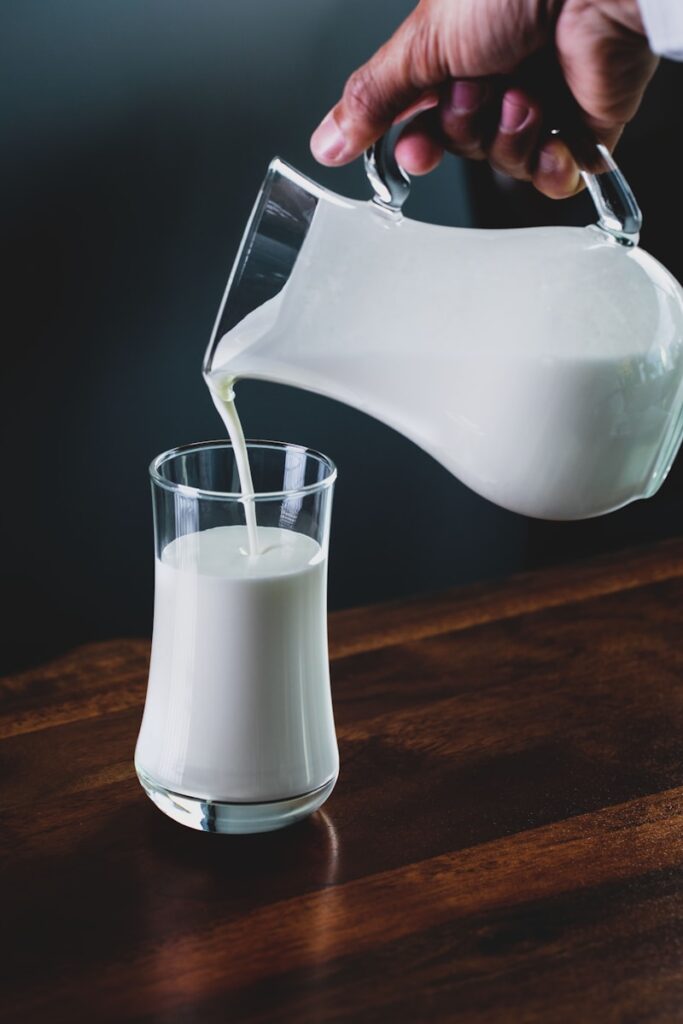
The main dairy products such as ice cream, cream, milk, cheese, yogurt, cream, butter, and kefir are an essential part of many diets due to their high nutritional value. They are excellent sources of calcium and protein, which are vital for strengthening teeth and bones. Additionally, dairy products often contain beneficial probiotics—good bacteria that support gut health and help boost the immune system.
However, dairy can also have drawbacks. The bacteria that support digestive health may contribute to bad breath if proper oral hygiene is not maintained. It is important to brush and floss regularly to counteract this effect. Now, when we experience something good, we usually want to tell others about it right? Well, dairy isn’t good for everybody.
Not everyone can consume dairy. Common reasons include:
- Lactose intolerance – the inability to digest lactose, the sugar in milk.
- Inflammation – dairy can aggravate certain inflammatory conditions.
- Allergies – some individuals have immune reactions to dairy proteins.
- High cholesterol – full-fat dairy can be high in saturated fats.
Therefore, we will provide a list for good alternatives.
Dairy Alternatives
Milk Alternatives
- Soy Milk – High in protein and similar to cow’s milk nutritionally
- Almond Milk – Low in calories with a nutty flavor
- Oat Milk – Creamy and ideal for coffee, cereal, and baking
- Coconut Milk – Rich and slightly sweet, great in cooking
- Rice Milk – Light and sweet; good for those with allergies
- Hemp Milk – Contains omega-3s; earthy flavor
Cheese Alternatives
- Nut-Based Cheeses (e.g., cashew, almond) – Creamy texture, used in spreads and soft cheeses
- Soy-Based Cheese – Often melts like dairy cheese
- Coconut Oil-Based Cheese – Popular in vegan cheeses for melting and slicing
- Nutritional Yeast – Flaky, cheesy flavor; great for sprinkling on dishes
Yogurt Alternatives
- Coconut Yogurt – Thick and creamy with a tropical taste
- Almond Yogurt – Light and slightly nutty
- Soy Yogurt – High in protein and similar to traditional yogurt
- Oat Yogurt – Mild flavor, creamy consistency
Butter Alternatives
- Vegan Butters (plant oil blends) – Designed for spreading, baking, and cooking
- Coconut Oil – Common in baking and sautéing
- Olive Oil or Avocado Oil – Healthy options for cooking and dressing
- Nut Butters (e.g., almond, cashew) – Good for spreading and flavor
Cream Alternatives
- Coconut Cream – Rich, thick, perfect for desserts or sauces
- Cashew Cream – Blended cashews for a smooth, neutral base
- Soy or Oat-Based Creams – For cooking or coffee
Kefir Alternatives
- Almond or Soy Kefir – Plant-based and cultured with live bacteria
- Coconut Milk Kefir – Fermented and probiotic-rich
- Water Kefir – Non-dairy, fermented beverage with probiotics
Grains

Grains are a vital part of a balanced diet, offering numerous health benefits. They are a primary source of energy due to their high carbohydrate content, making them essential for fueling the body. In addition to providing energy, grains are rich in dietary fiber, which supports digestive health by promoting regular bowel movements and helping to cleanse the digestive tract. They also supply important nutrients such as B vitamins, iron, magnesium, and antioxidants, all of which contribute to overall wellness. Like vegetables, grains play a key role in maintaining a healthy digestive system and supporting long-term health.
Whole Grains
- Brown Rice
- Quinoa
- Oats (Whole Oats, Rolled Oats, Steel-cut Oats)
- Barley
- Farro
- Buckwheat
- Millet
- Amaranth
- Spelt
- Teff
- Rye (Whole Rye)
- Freekeh
- Wild Rice
- White Rice
- White Flour (All-purpose Flour)
- Cornmeal
- Semolina (Used for pasta)
- White Pasta
- Polenta
- Couscous (Made from semolina, often refined)
- Bread Flour
- Sorghum
- Chia Seeds (often considered a pseudo-grain)
- Flaxseeds (also often considered a pseudo-grain)
- Teff
- Hemp Seeds (sometimes used like grains in recipes)
Meats

Meat is an excellent source of high-quality protein, which is essential for building and repairing tissues in the body. In addition to protein, meat provides a wide range of essential nutrients, including important vitamins and minerals such as iron, zinc, and B vitamins—especially B12, which is not naturally found in plant-based foods.
While some people choose to supplement their diets with alternatives like omega-3 capsules, whole foods such as beef offer a more complete and bioavailable source of nutrition. Although plants contribute many valuable nutrients, they may not always provide everything the body needs as efficiently as animal-based foods. Including moderate amounts of lean meat in the diet can contribute significantly to overall health and well-being.
Meats
- Beef (e.g., steaks, ground beef, roast beef, brisket)
- Lamb (e.g., lamb chops, lamb roast, ground lamb)
- Pork (e.g., pork chops, bacon, pork belly, sausages, ham)
- Venison (deer meat)
- Bison
- Goat (used in various cuisines around the world, such as in the Caribbean or Indian dishes)
- Mutton (older sheep, similar to lamb but with a stronger flavor)
- Chicken (e.g., whole chicken, chicken breasts, thighs, wings, drumsticks)
- Turkey (e.g., whole turkey, turkey breast, turkey legs)
- Duck
- Rabbit
- Guinea Fowl
- Quail
- Sausages (various types made from beef, pork, chicken, or lamb)
- Bacon
- Ham
- Salami
- Pepperoni
- Prosciutto
- Mortadella
- Pastrami
- Hot Dogs (usually made from beef, pork, or chicken)
Nuts and seeds
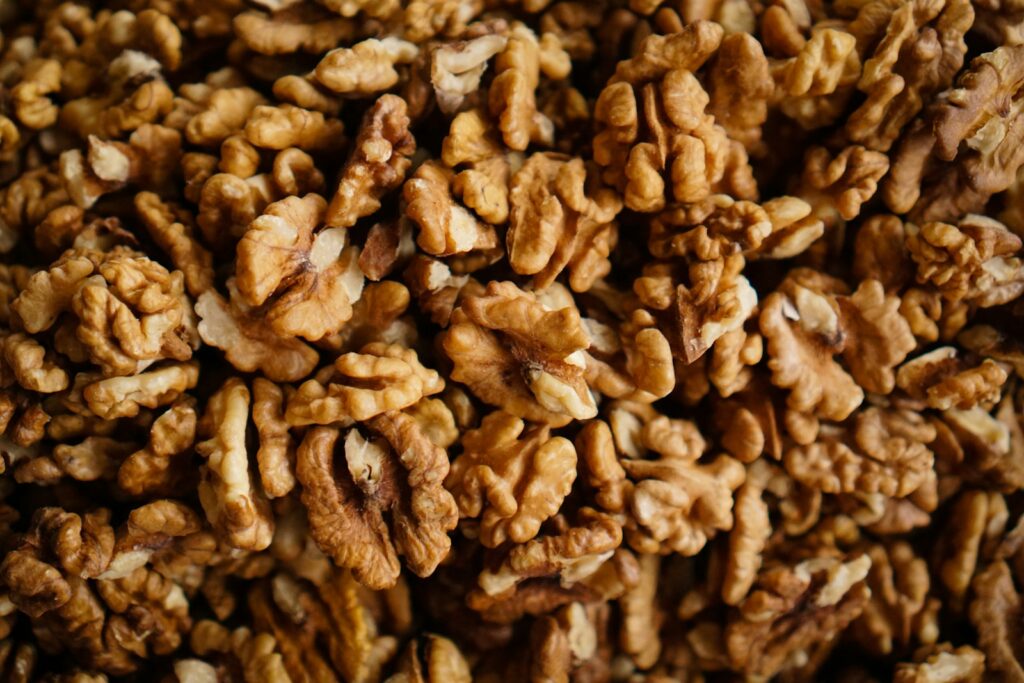
Nuts and seeds are nutrient-dense foods that offer a wide range of health benefits. They are rich in healthy fats, particularly unsaturated fats, which support heart health and help reduce inflammation. In addition, they provide high-quality plant-based protein, making them a valuable part of vegetarian and omnivorous diets alike.
Nuts and seeds are also excellent sources of fiber, antioxidants, and essential nutrients such as vitamin E, magnesium, zinc, and omega-3 fatty acids. Regular consumption of nuts and seeds has been linked to improved cardiovascular health, better weight management, and reduced risk of chronic diseases. Including a variety of these foods in your diet can contribute to overall wellness and long-term health.
Nuts and Seeds
- Chia seeds – Packed with fiber, omega-3s, and antioxidants.
- Flaxseeds – High in lignans, fiber, and plant-based omega-3s.
- Pumpkin seeds (pepitas) – Rich in magnesium, zinc, and iron.
- Sunflower seeds – Good source of vitamin E and selenium.
- Sesame seeds – Contain calcium, iron, and lignans.
- Hemp seeds – High in protein and omega-3 and -6 fatty acids.
- Poppy seeds – Source of calcium, iron, and fiber.
- Cumin seeds – Used more as a spice but offer iron and antioxidants.
- Fennel seeds – Aid in digestion and are rich in fiber.
- Caraway seeds – Provide fiber, antioxidants, and digestive benefits.
- Almonds – Rich in vitamin E, magnesium, and healthy fats.
- Walnuts – High in omega-3 fatty acids and antioxidants.
- Cashews – Good source of copper, magnesium, and iron.
- Pistachios – High in protein, fiber, and antioxidants.
- Pecans – Rich in healthy fats and polyphenols.
- Hazelnuts – Contain vitamin E, healthy fats, and folate.
- Macadamia nuts – High in monounsaturated fats and low in carbs.
- Brazil nuts – One of the best natural sources of selenium.
- Pine nuts – Source of vitamin K, magnesium, and iron.
- Chestnuts – Lower in fat, high in vitamin C and fiber.
In Conclusion, . . .
Now that you know about the many food groups, it is up to you to decide what your going to do about it. Are you going to live life eating and drinking whatever you want? Or, are you going to carefully consider what you are going to eat for the health of your body?
You know the right choice.
Thanks for taking the time to read our article.



